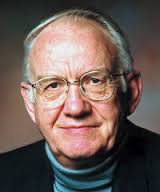*References in this post will be taken from Gordon Fee’s God’s Empowering Presence (Grand Rapids: Baker Academic, reprint edition, June 1, 2009)

Triumphalistic theology (or Triumphalism) is a theology prevalent in many denominations but generally found in Pentecostal/Charismatic circles. Such a theology focuses on the Christian life being one of glory while neglecting that it is also to be one of suffering. Now while it is true that we are promised glory in this life (though not the kind we may crave) we are most certainly promised suffering as well. This obviously is not appealing to most, how much more so to those living in a highly consumeristic land. Nevertheless the New Testament makes clear that it is fully natural for believers to suffer. Yet somehow this suffering aspect is either not talked about or referred to as merely a footnote in ‘prosperity gospel’ teaching. But one does not need to look far for Biblical support of the Christian call to suffer, one reason why rapid spread of triumphalism should come to us as a shock (unless it’s taken into account that a large number of Christians are in fact biblically illiterate).

New Testament scholar Gordon Fee holds ‘glory’ and ‘suffering’ to make up a tension in the Christian life, maintaining that we’re to hold both in equal balance (as Paul did; this is what he argues in segments of his book). A fellow Pentecostal himself, Fee uses the “already” and “not yet” tension throughout his enormous tome. This tension is captured perfectly by Jesus in the gospels who would speak about the kingdom of God as a present reality as well as a future time.
What triumphalism sets out to do is focus on the kingdom of God being here (present in the here and now) while neglecting that it is not yet fully rooted (it is in fact already and not yet). God’s kingdom (meaning his reign) is both present (there are healings) and future (there are disappointments as some aren’t healed, we fight sin, and we suffer the tyrannical effects of death). Though God reigns, this reign is not yet fully realized and won’t be until Jesus’ return.
Some in faith-healing circles go so far as to deem those who have not been healed as having an insignificant amount of faith. Such individuals would do well to read verses like 2 Corinthians 12:7-10 (in which even the great apostle Paul’s prayers of faith do not supersede God’s sovereignty) as well as Mark 8:22-26 (in which a man’s healing is done in a process; it’s not automatic).
Fee suggests that when we find the middle ground in our theology “we neither expect too much or too little. . . . Here we will regularly expect, and see, both the working of miracles and the fellowship of his [Christ’s] sufferings, without sensing frustration in either direction” (p. 8, introduction). Though Fee is not for ‘triumphalism’ he is equally against the ‘defeatist’ (his word) Christian who does not know any glory/triumph. He argues that “we not settle for for a watered down understanding that gives more glory to Western rationalism than to the living God” (p. 9)
*Recommended reading: Surprised by the Power of the Holy Spirit (Jack Deere). This book is not written from a traditional Pentecostal view. That is because Jack Deere was a professor for years at Dallas Theological Seminary, a school which is highly cessationist (i.e., they believe gifts like tongues, prophecy, and healing ended with the apostles). Deere’s journey from being a cessationist to continuationist is wonderfully captured in an exciting and highly-readable style, full of wit as well as theological depth. (I could not put the book down.)
Fee, like Deere, is not at all a traditional Pentecostal but has been known to say that he is a scholar first and Pentecostal second. I highly recommend Fee’s book with this disclaimer: THIS IS AN ACADEMIC BOOK! (It’s not a light read.) But, if you’re up for a challenge the book is a gem for any Christian library. It’s also is a very light (or at least entertaining) read for an academic book.

2 Pingback